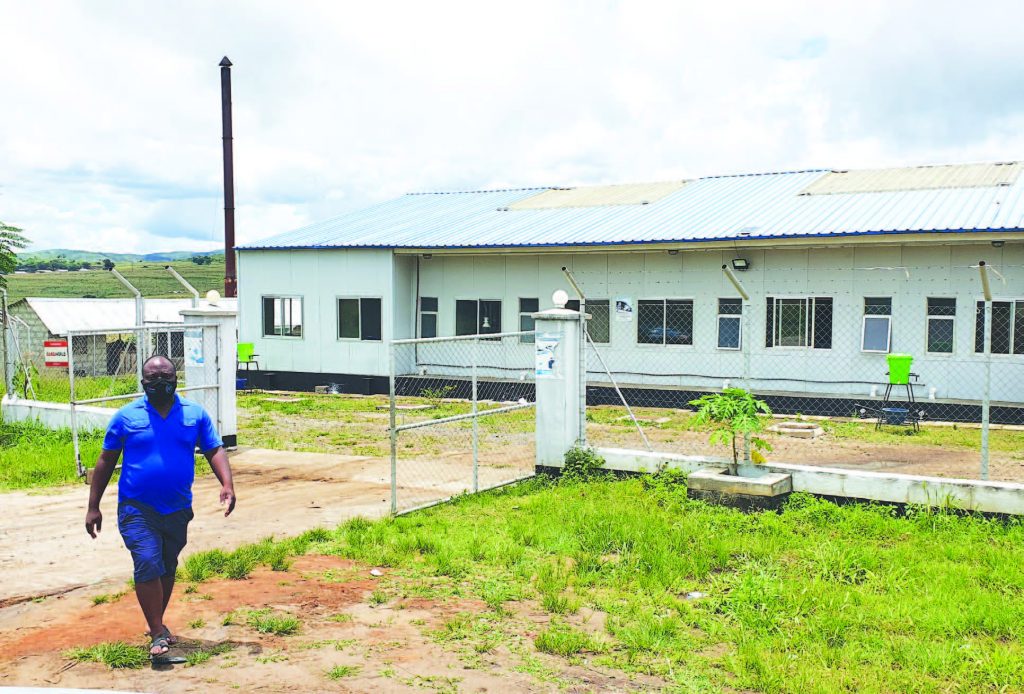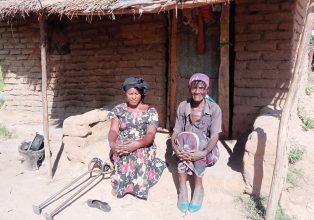Hope, caution as Covid wanes
The coronavirus burden in Malawi is falling steeply, but experts say it is too early to return to normal.
Frontline health workers are waving goodbye to the second wave which turned a presidential palace and sports venues into emergency hospitals.

“This could be the beginning of the end. The positive rates, admissions, deaths and contacts have fallen dramatically. Health workers are no longer stretched as we were in January,” says Penjani Chunda, Covid-19 response coordinator in Blantyre, one of the country’s hotspots` of the pandemic.
With few cases and contacts to trace, his team hopes this is the end of the spike which killed two Cabinet ministers and four lawmakers in January when the country once registered 1 316 cases and 38 deaths a day.
The surge left Kameza Isolation Centre in Blantyre overcrowded. Coronavirus suspects desperate for testing were stuck in long lines for hours. The centre takes no more than 100 samples a day, so everyone had to book a test a day earlier. By noon, overworked staff agonisingly requested half the queue to return the following day for the service that now takes less than 10 minutes.
Presently, the centre looks deserted as sporadic clients head for a registration window right away. A nurse records their background details before a laboratory technician inserts a swab in a clients’ nose to extract excretions for laboratory analysis and rapid tests.
The entire process takes 10 minutes, down from four hours on January 21.
“It’s incredible that for half an hour, no one has come for testing. In January, there was no time to rest,” says a nurse, waiting for clients.
The centre for highly infectious diseases now tests just over a tenth of its daily maximum, according to Chunda.
“We sometimes test just 11 a day, mostly contacts and people with symptoms. As positive tests and serious cases are falling, the contacts have become few,” he explains.
Slowly, health workers are reverting to tackling everyday illnesses.
“Since the emergency is lessening, some are re-adjusting to common illnesses while capitalising on the manageable levels to stop the pandemic,” he explains.
Charles Mwasambo, the Principal Secretary for the Ministry of Health, says the next wave “could be worse if we become less vigilant”.
He warns: “It’s too early to relax. We have been through this before. But it is encouraging that the positive tests, hospital admissions and deaths are dwindling. We need not lose concentration as we did in December.”
A year into the pandemic, Malawians celebrated Christmas and New Year festivities with communal prayers, parties and concerts despite a partial lockdown and bans on public gatherings. Musicians obtained a court order to lift a ban on live shows.
“Just when many thought Covid-19 was over, the second wave hit us hard. Some people stopped masking up and frequently washing hands with soap, but the public gatherings were the major culprits,” Mwansambo explains.
He expects a permanent decline with the vaccine President Lazarus Chakwera launched on Thursday if Malawians strictly follow precautions.
“We have had lessons from the first and second waves. If we slow down, we will suffer a third wave. Kenya suffered the second wave earlier than us, but the numbers are rising again. This could be the start of another wave.”
After taking the jab in Zomba, Chakwera saluted frontline workers and compliant citizenz for the decline in positive tests to eight percent.
“As the positivity rate continues to fall, preferably to levels below five percent, we will be able to start easing restrictions and returning to normal,” he said.
But the World Health Organisation (WHO) chief Tedros Adhanom Ghebreyesus warns that ignoring Covid-19 rules could lead to a third wave and even a fourth.
“It is a mistake to think that falling death rates in some countries mean that the pandemic is over,” he says, saluting Covax for delivering more than 20 million vaccine doses to 20 countries, including Malawi.
Similar caution is ringing in the 300-bed emergency hospital in the basement of the idle Bingu National Stadium in Lilongwe.
The isolation centre established to lessen pressure on Kamuzu Central and Bwaila hospitals in the capital city is on the cusp of being decommissioned as it now has 12 patients, down from 80 at its inception in January.
“We have conquered the second wave, but it may not be the last if we relax again,” said Dr Anthony Chafunya, the team leader.




